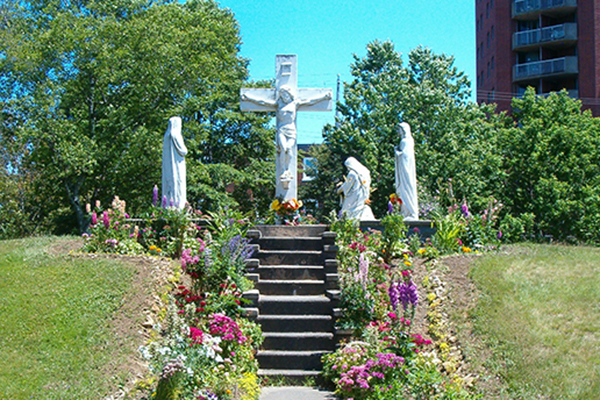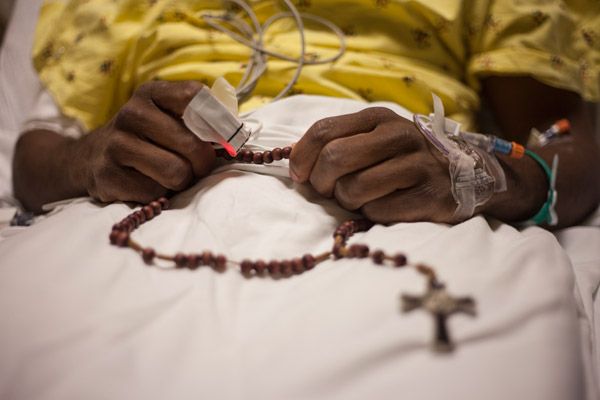
Ministry of Care and Companionship
as we care for the sick and comfort the dying.
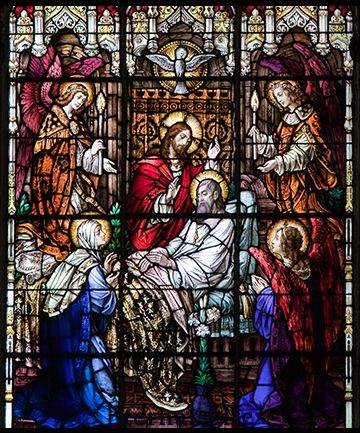
Death of St. Joseph
Stain Glass Window, St. Mary’s Cathedral Basilica, Halifax, NS
Dying with Christ, Living with Hope
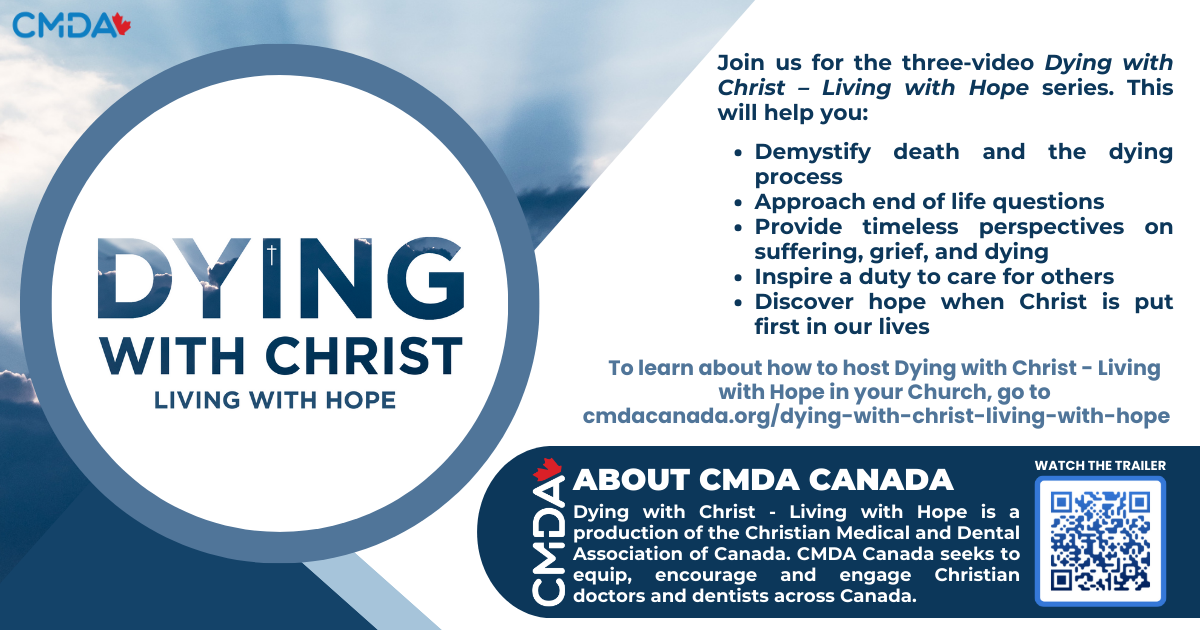
MAiD - Reflection Series
Preview
What is the meaning of life? The legalization of euthanasia (Medical Assistance in Dying) in Canada in 2016 has raised some serious questions on the meaning and value of human life. Traditional Christian values have insisted that euthanasia is not compatible with the Christian faith. Today marks the first installment of a series of reflections that describe the Christian idea of death and gives clear reasons why euthanasia is not consistent with Christian values and a Christian life.
The Meaning of Life
What is the meaning of life? For the Christian our meaning comes from knowing, loving and serving Christ both in this world and into the next. Having faith in Christ brings about personal change as our values, ideas and desires are gradually transformed to become the values, ideas and desires of Christ. Our respect for human dignity grows as does our desire to help people who are experiencing vulnerability. We need to remember that when we look into the face of a person who is very sick, or who is living with a disability or chronic health condition we are looking at the face of Christ: “Whatever you did for one of the least of these brothers and sisters of mine, you did for me.” Mt. 25:40 (NIV) Despite what we may think, the death of a patient through euthanasia does not help anyone know, love or serve Christ better. Christ’s response to people who are experiencing vulnerability is to come alongside them, alleviate their suffering and support them in their time of need. (cf. Luke 10:25-37) Jesus never killed anyone, and neither should we.
At Home Reflection: Faith in Christ helps us to see the creative hand of God in each person we meet, as the psalmist says, “I praise you because I am fearfully and wonderfully made; your works are wonderful, I know that full well.” Ps. 139:14 (NIV) Spend time at home reflecting on God’s purpose for humanity and for your own life.
The Christian Medical and Dental Association of Canada offers a three-part course on this topic called Dying with Christ – Living with Hope. For more information visit https://cmdacanada.org/dying-with-christ-living-with-hope/
Preview
Whose life are you living? The apostle Paul said “it is no longer I who live, but it is Christ who lives in me.“ (Gal 2:20 NRSV-CE) By a series of decisions and actions made in faith the Christian expresses their desire to be like Christ in their life in the world. But what about euthanasia? Is this something that a Christian can participate in and still imitate Christ? Traditional Christian values have insisted that euthanasia is not compatible with the Christian faith. Today marks the second installment of a series that describes the Christian idea of death and gives clear reasons why euthanasia is not a choice consistent with living your life in Christ.
Whose life are you living?
The apostle Paul said the following in his letter to the Galatians “it is no longer I who live, but it is Christ who lives in me.“ (Gal 2:20 NRSV-CE) By a series of decisions and actions made in faith, the Christian expresses their desire to be like Christ in their life in the world. This requires a willingness to turn away from the temptation of selfish motives and do the right thing, gradually making Christ more and more present in the world. Sometimes it can be difficult to make these choices. Christians have the Holy Spirit which leads us in all truth so that we know what is good and have the courage to do it. The Holy Spirit speaks through the scriptures and the teaching of the Christian community to help us to choose what is the will of Christ: “what is good and acceptable and perfect”. (Rom. 12:2 NRSV – CE) Traditional Christian teaching on euthanasia follows the Ten Commandments which teach: “You shall not murder” (Ex. 20:13) As we “do the right thing” we find that we are rewarded with an even greater trust in God who cares for us in the midst of our vulnerability. (cf. Mt. 6:33) The more vulnerable we become the more we learn to rely on Christ. This process gradually prepares us for eternity in heaven when He will truly be our “all in all”. (cf. Col. 3:11)
At Home Reflection: Take a moment and ask yourself this question: “Have I turned over my life completely to Christ?” For most people, if we are being honest, this process is gradual. Take a moment and do a personal inventory. What areas of your life have you not given over to Christ? What areas do you make decisions before consulting him because you are not sure what he will say? Ask Jesus in prayer to come into your heart and direct you to be the person he wants you to be in all areas of your life. Spend time at home reflecting on God’s purpose for humanity and for your own life.
The Christian Medical and Dental Association of Canada offers a three-part course on this topic called Dying with Christ – Living with Hope. For more information visit https://cmdacanada.org/dying-with-christ-living-with-hope/
Preview
What are you afraid of? Canada has one of the most technologically advanced healthcare systems in the world yet many Canadians are afraid that they will not be able to cope with end-of-life health care challenges. Palliative care physicians tell us that they are able to effectively treat all pain at end of life. Many people are choosing euthanasia because of the fear of pain, rather than the pain itself. What does Jesus tell us about fear and how to cope with it? This is the third in a series of reflections on a good Christian death and how euthanasia fuels fear, rather than trust in God’s love.
What are you afraid of?
What are you afraid of? God tells us more than 100 times in the Bible to not be afraid. In his first letter, John reminds us that “perfect love casts out fear”. (1 John 4:18 NRSV-CE) Jesus reminds us that we are of more value to God than anything else.
Are not five sparrows sold for two pennies? Yet not one of them is forgotten in God’s sight. But even the hairs of your head are all counted. Do not be afraid; you are of more value than many sparrows. (Luke 12:6-7)
Of course, it is natural to feel afraid at certain points in our lives. For those who have anxiety, fear may be a more common occurrence. The most important question is what do we do with the level of fear that we experience? Do we allow it to paralyse us and keep us from doing the right thing? Knowing God in an intimate way establishes trust in his loving kindness and helps us overcome fear, by reminding us of his presence. We can have courage even in the face of great challenges through the grace of God given to us through the sacraments, the scriptures and the love and support of others. In his last words in the gospel of Matthew to the early church in crisis Jesus says “And remember, I am with you always, to the end of the age.” (Mt. 28:20 NRSV – CE)
Christians don’t even need to fear death. As the apostle Paul says:
“Where, O death, is your victory? Where, O death, is your sting? The sting of death is sin, and the power of sin is the law. But thanks be to God, who gives us the victory through our Lord Jesus Christ. (1 Cor. 15:55-57 NRSV-CE)
Catholics love to pray the “Hail Mary” prayer, asking the Mother of Jesus to pray for us “now and at the hour of our death”. We seem to intuitively know that the hour of our death may be an uncertain and very dynamic time. What a comfort to know that Christ himself will be with us, along with the Blessed Mother, the communion of saints in heaven and the Christian community on earth to see us through our final journey to the celestial courts. And imagine what sights we will behold:
He will dwell with them, and they shall be his people, and God himself will be with them; he will wipe away every tear from their eyes, and death shall be no more, neither shall there be mourning nor crying nor pain any more, for the former things have passed away. Revelation 21:3-4 NRSVCE
For those who struggle with fear, there is the constant unconditional love of Christ that gives us strength to face the greatest hardships, even death.
At Home Reflection: Are you afraid of death? Spend some time praying about it. What is the aspect of death you fear the most? Could you discuss this particular fear with a trusted friend, health care professional, or family member? This is one way to uncover a fear and to respond constructively to it by getting the facts. Or take the fear to Jesus and ask him to help you cope with it. Spend some time slowly reading the three scripture passages in today’s reflection as you meditate on the love of Christ for each of us. Try to rest in His Presence and hopefully your fear will lessen in intensity. “God is our refuge and strength a very present help in trouble.” (Ps. 46:1 NRSV-CE)
The Christian Medical and Dental Association of Canada offers a three-part course on this topic called Dying with Christ – Living with Hope. For more information visit https://cmdacanada.org/dying-with-christ-living-with-hope/
Preview
What is a good Christian death? In the 14th century the church responded to the challenge of the Black Death with a manual that listed the components of a good death from a Christian perspective. They all focus on the preparation of the soul for passing into new life in Christ in heaven for all eternity. The emphasis is spiritual. Unfortunately, the modern world in which we live is very materialistic. The existence of the soul is denied and as a result decisions can be made that do not nourish the soul and may even damage it. Sadly, many of the promoters of euthanasia do not believe in God and do not see the spiritual damage brought by their policies.
What is a good Christian death?
During the Middle Ages, Europe was ravaged by the Black Death. A very popular manual arose which summarized for the average Christian the key steps to a good death. It was a comfort to people to set their eyes upon heaven to find solace and peace during a time of great social upheaval.
The key components of this manual called De Ars Moriendi (The Art of Dying) follow:
- We are called to prepare for death by living a good life, being prepared at any moment to be called home to the Lord
- We are faced with five primary temptations during the dying process (loss of faith, despair, impatience, pride, and avarice). We are called to overcome them by practicing the virtues (faithfulness, patience, humility and charity)
- We are urged to reaffirm our faith, repent of our sins, and draw closer to Christ. (This ordinarily occurs within the sacraments of the Anointing of the Sick, Reconciliation and Eucharist.)
- We are called to imitate Christ as HE faced death.
- We are invited to provide a testimony to those caring for us regarding our faith in Christ.
- When we are on the threshold of death, the final duty of those caring for us is to pray for our soul.
These simple, yet profound, prescriptions focus on the spiritual well-being of the patient and their preparation for eternal life. As Jesus promises in the gospel of John: “I am the resurrection and the life. Those who believe in me, even though they die, will live, and everyone who believes in me will never die.” (John 11:25-27 NRSV-CE)
At Home Reflection: What is good Christian death? Many people write a will, choose a Power of Attorney or a substitute decision maker. But have you made spiritual plans for your death? Sometimes people’s families have limited exposure to the Church and may not know how to make the appropriate arrangements. Take some time to write down your wishes and share those with your loved ones. It is important that we leave a good witness of our faith in Christ after our death. One never knows who might be impacted by a life lived in faith.
The Christian Medical and Dental Association of Canada offers a three-part course on this topic called Dying with Christ – Living with Hope. For more information visit https://cmdacanada.org/dying-with-christ-living-with-hope/
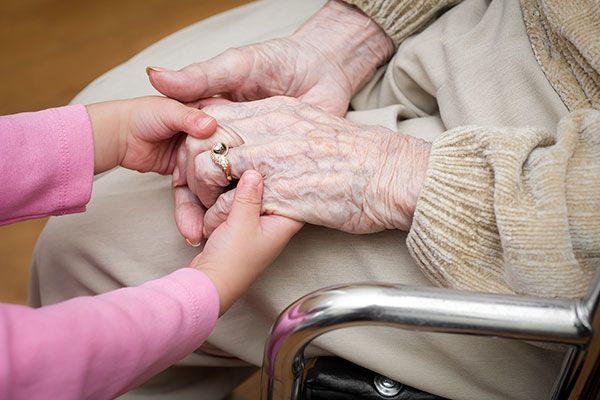
As parents, grandparents, neighbours, and parishioners age, many of us find ourselves asking hard questions. What kinds of support and advocacy are needed? How do we respond well? What role do families and faith communities play?

On February 4 the Permanent Council of the Canadian Conference of Catholic Bishops (CCCB) issued a statement strongly supporting Private Member’s Bill C-218, which seeks to prevent persons whose sole medical condition is mental illness from accessing euthanasia and physician-assisted suicide (“MAiD”).
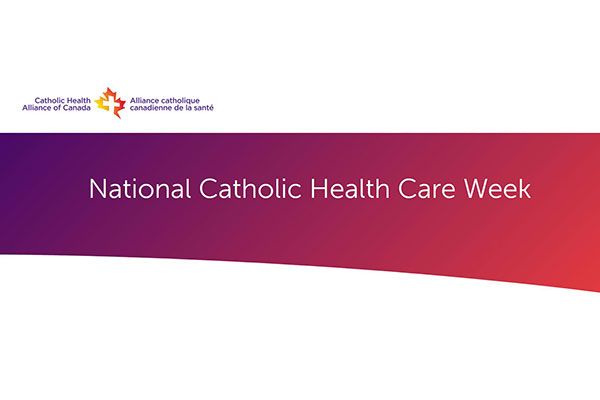
During the first week of February, many dioceses across Canada recognize the National Catholic Health Care Week. While Nova Scotia does not have specific Catholic healthcare facilities we do have many Catholic physicians, nurses, and many other healthcare provides. Let us remember them and the important work they do.
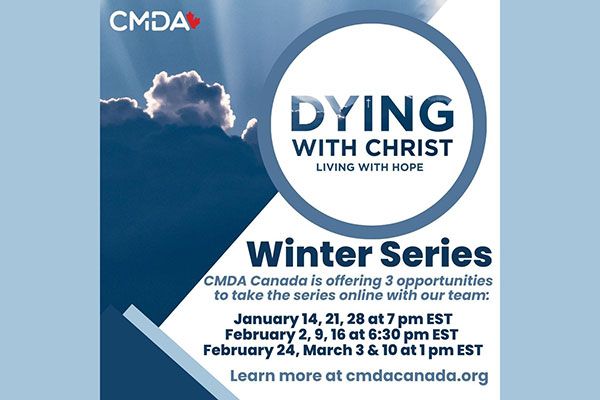
Dying with Christ – Living with Hope is a hope-filled program that speaks to one of the most universal human experiences. Led by theologians and healthcare professionals, this series offers meaningful insight into suffering, grief, dying, the duty to care, and how we can enter more deeply into the Christian hope of dying with Christ.
Pastoral Letters on Physician Assisted Dying

* Pastoral Letter on Physician Assisted Dying (Eng/Fr)
By Archbishop Mancini - Link
(includes a download - FAQ on Physican Assisted Dying)
* A Pastoral Reflection on Medical Assistance in Dying
by the Atlantic Bishops
English
French

